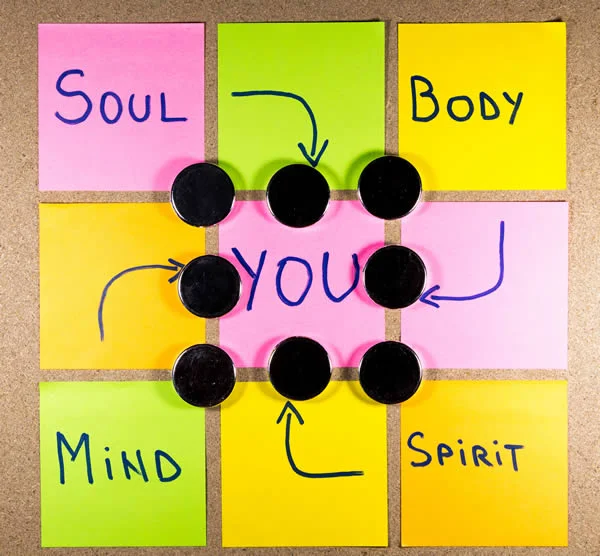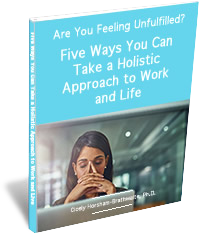Dorothy Orem, a nursing theorist, defined self-care as the “practice of activities that individuals initiate and perform on their own behalf in maintaining life, health and wellbeing.” What research tells us is that wellbeing activities like mindfulness are not about achieving a goal – for example, to feel better, be better or do better – but rather allowing ourselves to be present in the moment. Reduction in sadness and anxiety, for example, are happy by-products of mindfulness. So, self-care is what we do as maintenance for a life well lived. When we have a consistent self-care practice, our established healthy habits can carry us through times of stress. Self-care is not, as Debrena Jackson Gandy, author and self-care expert, aptly notes, about getting your hair and nails done. That is grooming. She differentiates between focus on external activities that do not create lasting internal joy and pampering that is targeted action that strengthens your inner self. Based on this concept, scheduling time each week to, for example, take a meditative walk, soak in a bubble bath or write in your journal allows you to strengthen and support your inner resources. It is the commitment to the ongoing practice of self-care activities that is the key.
When I first began my work in self-care, I believed (and taught) that women’s self-care is perhaps the most radical act we can undertake. Its practice allows us to heal from centuries-old cultural programming that teaches women not to prioritize the self. I still believe in the concept of radical self-care, but I have come to realize that self-care stems from a more basic need. What I missed, I now believe, is that the deep healing power of self-care is the commitment we make to such practices “just because,” rather than in reaction to a specific expectation or demand. This means that you, your needs, your body, your sacredness alone are sufficient conditions for regular self-care. You are worth it. No other reason is necessary.
Throughout my career, I have worked with talented, smart, high-achieving women who are used to working hard to meet their goals. I am often in awe of how amazing they are. The lightbulb moment that usually brings them to an awakening about the importance of self-care is the realization of their pain and the repetition of behaviors that lead to dissatisfaction, exhaustion and lack of fulfillment despite their successes. Or, the excruciating pain of a personal, professional or familial tragedy that brings them and life as they knew it to a halt. It is almost a certainty that life will, at some point, present to us these painful circumstances; however, suffering does not have to be a bedfellow to our pain. Having a self-care practice in advance allows us to rely on our routine to carry us through difficult times when our emotions might otherwise take control. During such times, emotions, left unchecked, can lead to harmful attempts to cope, such as compulsive shopping, eating or drinking. You don’t have to wait for tragedy, and you don’t have to wait for pain. You can find a way to care for yourself.
What keeps many of us from engaging in self-care now? During our work together, what my clients and I find time and time again is a set of unspoken, limiting beliefs that secretly drive their inability to commit to self-care. Themes that often come up are:
- I am not worth taking time to care for myself.
- Who I am, is deeply tied into who I am to/for people in my life.
- If I focus on taking care of myself, others won't love or approve of me.
- If I am not doing, I don't have meaning.
You may recognize yourself in these statements and wonder how you can let go of the beliefs that seem to shape and drive your choices. But, limiting beliefs like these can be wiped out. The first step is awareness and active work to negate those beliefs when they emerge. To gain increased clarity about beliefs that might be impacting your ability to engage in better self-care, I invite you to try the following exercise.
Pick a five-day stretch during which you can commit to writing in a journal for ten minutes a day. Each day, allow yourself to write freely and answer the following questions:
What is my worth? What is keeping me from expressing my worth? Where did I learn this? What would I be willing to give up to live as though I know my worth? What would I be doing if I lived according to my true worth?
Just allow yourself to write without censoring yourself. At the end of the fifth day, review your writings. What themes do you notice? What beliefs have been holding you back? What can you do with this awareness to make different choices about the way that you care for yourself? You now have a starting point to begin your journey toward meaningful self-care and a more peaceful, balanced and fulfilling life.






